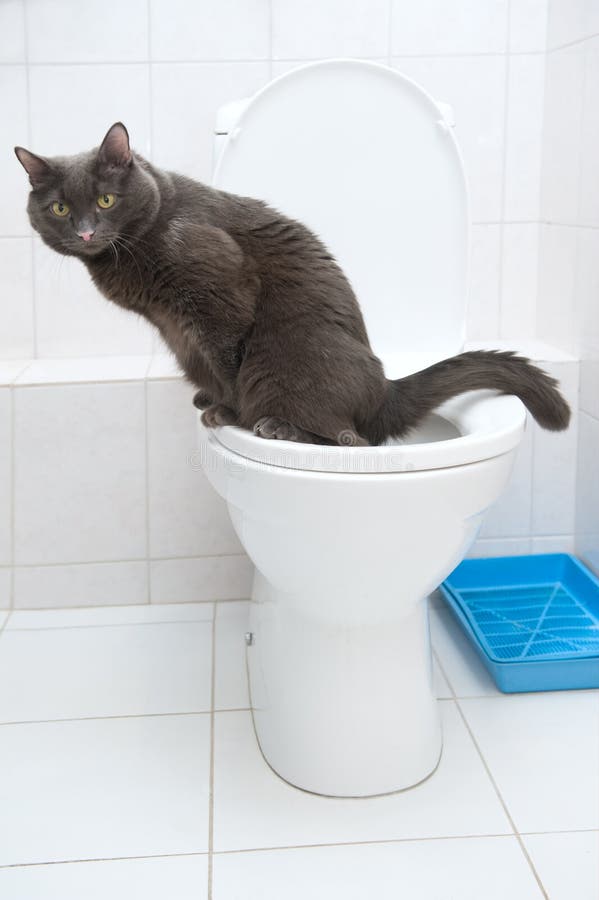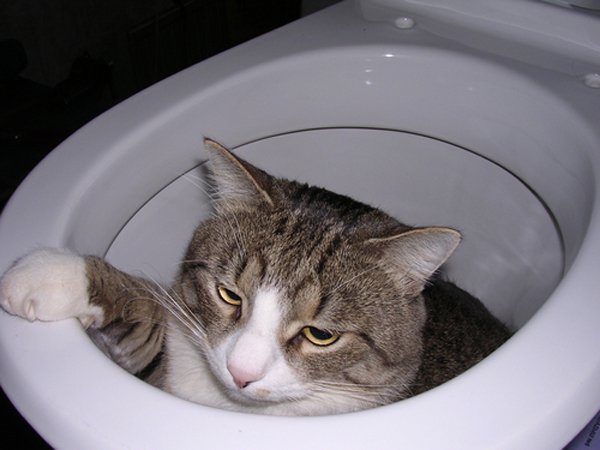Why Flushing Cat Poop Down Your Toilet Isn't a Good Idea - Tips for Safer Disposal
Why Flushing Cat Poop Down Your Toilet Isn't a Good Idea - Tips for Safer Disposal
Blog Article
This post down below about How to Dispose of Cat Poop and Litter Without Plastic Bags is particularly attention-grabbing. Don't overlook it.

Introduction
As feline proprietors, it's vital to bear in mind exactly how we take care of our feline pals' waste. While it might seem hassle-free to flush pet cat poop down the toilet, this technique can have detrimental effects for both the atmosphere and human wellness.
Environmental Impact
Flushing pet cat poop introduces dangerous pathogens and parasites right into the supply of water, presenting a significant threat to aquatic environments. These impurities can negatively affect aquatic life and compromise water high quality.
Wellness Risks
In addition to environmental worries, flushing pet cat waste can likewise posture health threats to humans. Feline feces may consist of Toxoplasma gondii, a parasite that can trigger toxoplasmosis-- a possibly serious ailment, especially for pregnant females and individuals with weakened body immune systems.
Alternatives to Flushing
Luckily, there are safer and a lot more liable means to deal with pet cat poop. Consider the complying with choices:
1. Scoop and Dispose in Trash
One of the most usual method of getting rid of feline poop is to scoop it right into an eco-friendly bag and toss it in the garbage. Make certain to use a devoted trash inside story and take care of the waste promptly.
2. Use Biodegradable Litter
Opt for biodegradable feline clutter made from products such as corn or wheat. These clutters are eco-friendly and can be securely disposed of in the trash.
3. Bury in the Yard
If you have a yard, consider burying feline waste in a marked location far from veggie yards and water resources. Make certain to dig deep adequate to stop contamination of groundwater.
4. Mount a Pet Waste Disposal System
Purchase a family pet garbage disposal system especially created for feline waste. These systems utilize enzymes to break down the waste, minimizing odor and environmental impact.
Conclusion
Liable pet dog ownership prolongs beyond offering food and shelter-- it also entails correct waste management. By refraining from flushing cat poop down the commode and going with alternative disposal methods, we can reduce our environmental footprint and safeguard human health.
Why You Should Never Flush Cat Poop Down the Toilet
A rose by any other name might smell as sweet, but not all poop is created equal. Toilets, and our sewage systems, are designed for human excrement, not animal waste. It might seem like it couldn’t hurt to toss cat feces into the loo, but it’s not a good idea to flush cat poop in the toilet.
First and foremost, assuming your cat uses a litter box, any waste is going to have litter on it. And even the smallest amount of litter can wreak havoc on plumbing.
Over time, small amounts build up, filling up your septic system. Most litter sold today is clumping; it is made from a type of clay that hardens when it gets wet. Ever tried to scrape old clumps from the bottom of a litter box? You know just how cement-hard it can get!
Now imagine just a small clump of that stuck in your pipes. A simple de-clogger like Drano isn’t going to cut it. And that means it’s going to cost you big time to fix it.
Parasitic Contamination
Believe it or not, your healthy kitty may be harboring a nasty parasite. Only cats excrete Toxoplasma in their feces. Yet it rarely causes serious health issues in the cats that are infected. Most people will be fine too if infected. Only pregnant women and people with compromised immune systems are at risk. (If you’ve ever heard how women who are expecting are excused from litter cleaning duty, Toxoplasma is why.)
But other animals may have a problem if infected with the parasite. And human water treatment systems aren’t designed to handle it. As a result, the systems don’t remove the parasite before discharging wastewater into local waterways. Fish, shellfish, and other marine life — otters in particular — are susceptible to toxoplasma. If exposed, most will end up with brain damage and many will die.
Depending on the species of fish, they may end up on someone’s fish hook and, ultimately on someone’s dinner plate. If that someone has a chronic illness, they’re at risk.
Skip the Toilet Training
We know there are folks out there who like to toilet train their cats. And we give them props, it takes a lot of work. But thanks to the toxoplasma, it’s not a good idea.

I found that blog entry on Don’t flush cat feces down the toilet when perusing the internet. Be sure to take the opportunity to distribute this blog if you enjoyed it. Kudos for your time. Visit us again soon.
Phone Report this page